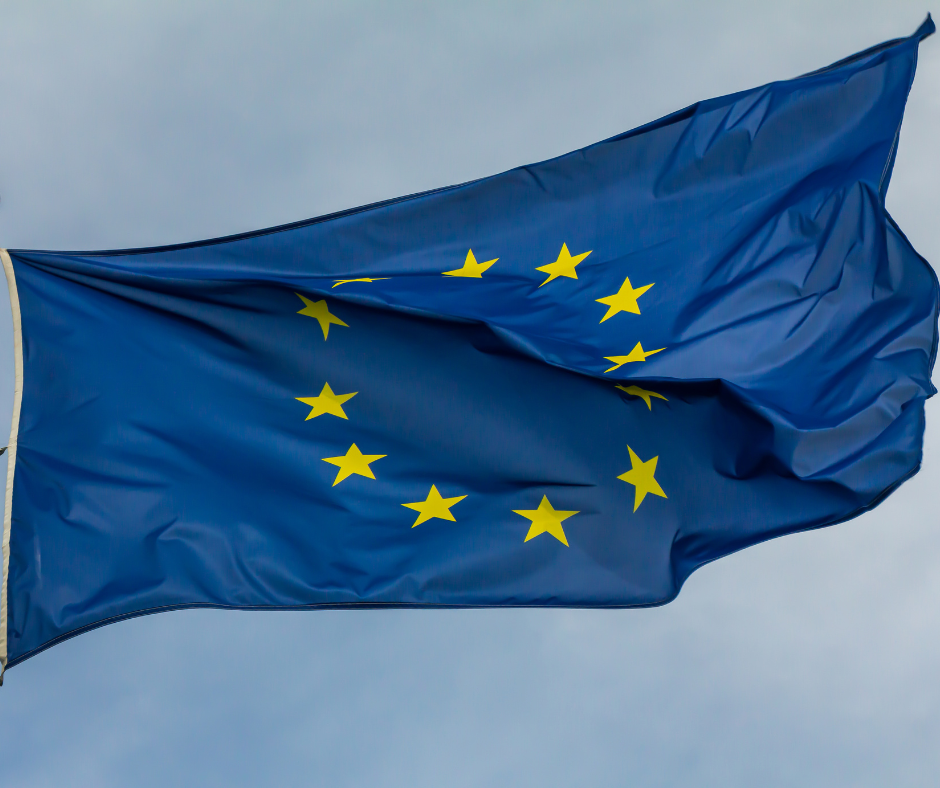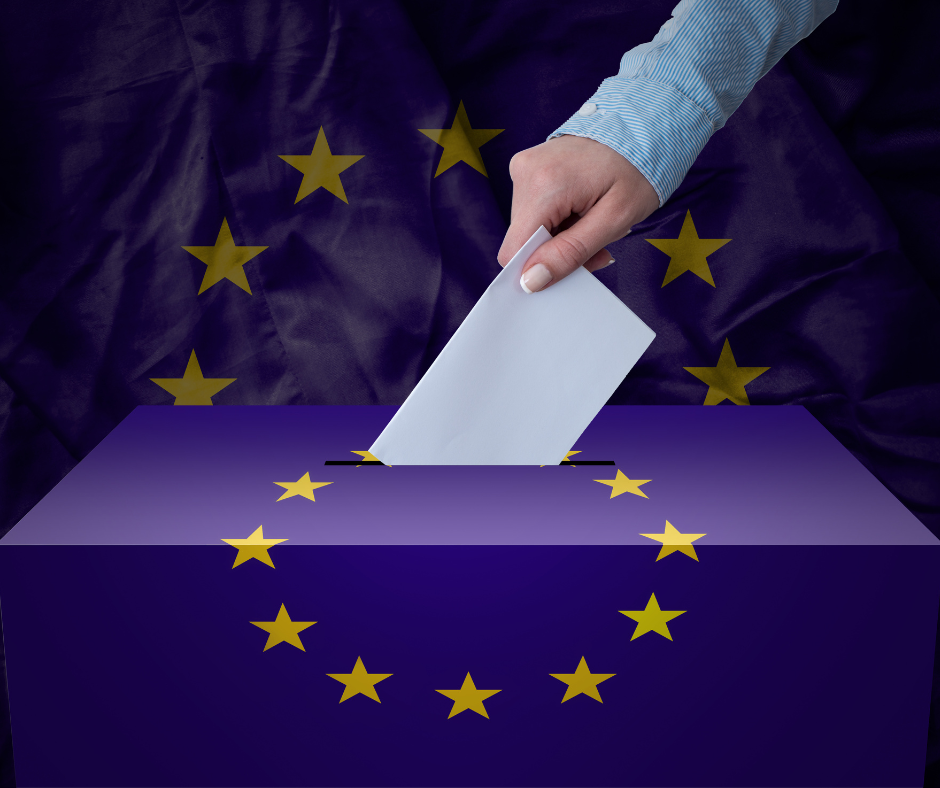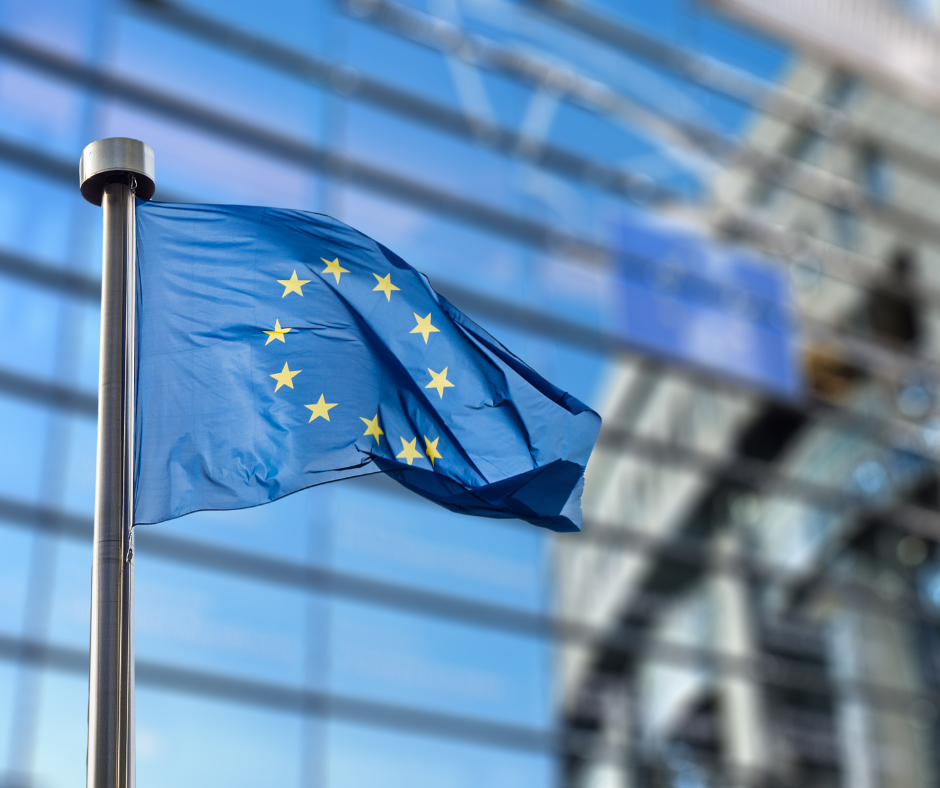Our government affairs manager, Zoltan Kesz, interviewed a candidate from Sweden’s Pirate Party for the European Parliament. The conversation sought to understand their perspectives on the future of Europe, the strategies they recommend for addressing present issues, and their position on important policy issues.
What are the biggest challenges the EU is currently facing?
“The biggest issue the EU is facing is how the rule of law and human rights are being challenged by certain member states as well as the EU commission itself, on issues such as Chat Control.
The proliferation of illiberal police states in Europe is a result of the continued expansion of mass surveillance, the fight against which is my main political focus. The first thing one needs to recognise is that there is no longer a distinction between state and corporate mass surveillance; state surveillance is primarily done through backdoors allowing access to data collected by businesses.
These corporations in turn secure their continued right to exploit consumer data through regulatory capture and lobbying efforts such as the policy note “Data and Consumer Privacy” by the Consumer Choice Center, a document that would seem convincing only to those lawmakers without a background in technology.”
What is your vision of Europe in the coming decade?
“My vision is that of a healthy Europe that continues to do what does best, such as the protection of civil- and especially consumer rights, and the benefits that brings, not only in greater individual freedom, but long-term prosperity of the whole union.
A great example of how to promote competition in a way that protects innovation is the implementation of the EU:s common charger mandate, where an industry standards body was deputized to decide on the specific connector, and were granted the mandate to change that standard in the future. This prevents consumer lock-in while allowing future innovation.
A functioning market relies on a genuinely informed consumer choosing between multiple meaningfully different products or services that are in genuine competition with one another. All market regulation should strive to strengthen these underlying conditions.”
How do you see the role of AI in the near future? What do you think of regulating it?
“I think one should be careful in regulating generative AI in such a way that would increase barriers to entry into this new space, where a healthy market with many strong competitors is vital. Regulations on how generative AI can be used, and how its products be disseminated are in my view unnecessary. Misinformation, doctored images, and the like are not new problems, we can use the tools we already have to combat those ills.
I think the appropriate regulations are those that lower barriers to entry, while limiting anti-competitive behaviour and reigning in companies that are approaching monopoly status. Examples of such would be regulation that promotes open source models, that can be run on consumer-grade hardware, instead of proprietary cloud solutions.
Putting generative AI to one side, there are other kinds as well, such as the systems employed in the service of mass surveillance. Because these are vulnerable to new kinds of abuse by governments as well as other powerful entities, these ought to be regulated. I think the newly-passed AI act is a step in the right direction, but the carve-outs for law enforcement and migration authorities are a major disappointment, and allows dystopian levels of automated state overreach. I am also sceptical of how the act hopes providers of high-risk systems will simply self-classify as such. Respect of individual’s rights should not be opt-in.”
How does Europe benefit from free trade agreements?
“Through the simple principle of competitive advantage. If, for instance, the production of some product relies on economies of scale in order to be competitive, perhaps the domestic EU market can only support one such company. That would lead to monopolization of the market, unless we then could expand the market to be shared between the EU and other friendly economies. The main purpose of free trade agreements ought to be the one thing they have shown they can actually accomplish: increasing the prosperity of the parties involved.
I am not, however, naive to the risks that free trade agreements could create through an over-reliance on imports from countries that may turn out to be less friendly than initially thought. In order to maximally benefit from free trade agreements, we should strive for the EU to be self-sufficient should it be necessary, as a side-effect, that would also mean domestic competitors in key markets, ensuring European consumers always have a choice of suppliers for any good or service they wish to buy.
In addition, we must not allow free-trade agreements to undermine our legislation in areas where we are already world-leaders, or force us to import bad laws such as the ACTA-like intellectual property requirements in the proposed TTIP. Well-made free trade agreements instead allow EU standards to protect even those living outside member countries.”
Many politicians talk about energy diversification. What is the ideal solution, in your opinion?
“Energy supply is highly dependent on both geography and economic factors. My home country, Sweden, has very beneficial geography enabling the production of large amounts of hydroelectric power. Not every country does, which is why I think the only necessary public spending initiative ought to be to keep developing the EU energy grid to enable those of us who are blessed by geography to provide others with green energy. Such expansions to the power infrastructure would also permit a larger proportion of intermittent green energy for any one country, as any excess could be sold on the European single market, which due to its scale will be naturally less prone to large price fluctuations.
Even with a more integrated grid, we would still have a need for base load power, and although I think a lot could be achieved by hourly pricing and so-called “smart grids”, as well as an expansion of pumped hydro, we would likely still need a lot of nuclear. Nuclear is the only (mostly) geography-independent carbon-free dispatchable energy, but since it has historically required large government subsidies to remain competitive, a minimisation of these subsidies is generally desirable, but may lead to a decline in the use of nuclear, which is acceptable only as long as it doesn’t lead to an increase in fossil fuel use.
Importantly, we also desperately need to reduce our reliance on fossil fuels, and I believe the most effective way to do so is by utilizing market forces in imposing a financial cost for the negative externalities that emissions constitute. In other countries, that could be achieved through a carbon tax, but the EU uses a cap-and-trade-system. The tradeoffs of the approaches can be discussed elsewhere, but in our current system, what would be needed is a further limitation of the granting of carbon credits, to compensate for the emissions caused during the ineffective pricing during the 2010s.”
Which one do you prefer and why? Innovation vs regulation?
“That is a strange question. Innovation, of course. Everyone obviously thinks they support innovation, and the regulation they support is necessary, whilst other’s proposed regulation is government overreach.
Consumer Choice Center, for instance, seems to want to be seen as strongly anti-regulation, yet you also support the government giving out monopoly rights to millions of companies every year in the form of
intellectual property. Patents and copyright are in my opinion the regulations that impose the greatest impediments to innovation, and they remain largely unquestioned. These concepts were designed hundreds of years ago, and applied for significantly shorter periods of time, and since then, despite the pace of technology and culture speeding up by order of magnitudes, their reach and the length of their terms have grown to ridiculous proportions.
This includes of course disproportionate enforcement measures such as those in the Directive on Copyright in the Digital Single Market, that put aside citizens’ and consumers’ rights to the benefit of rent-seeking by large corporate rightsholders.
Your collaboration with the ECR, “The Consumer Case for Intellectual Property”, is a bizarre propaganda stunt that betrays that when the interests of consumers and big business are at odds, you no longer side
with the consumer.”
What are your constituents concerned about regarding the European Union?
“I think many find the EU confusing and opaque, which to me seems to be mainly a problem of competent media coverage. I hope to continue the Pirate Party tradition of providing transparent and comprehensible information to both journalists and citizens.
Those I hope to represent in particular, are those most concerned about the right to privacy in a world of increasing mass surveillance, and to steer the EU in a direction that protects its citizens, instead of
further contributing to such surveillance.”
Do you think it is wise to accept more countries into the Union?
“Long-term, absolutely. It is however necessary to think about what their impact would be on the European political climate, as well as the single market. If, or perhaps when, Ukraine would join the EU, that would throw the agriculture market, with corresponding subsidies into total disarray, since their remarkable ability to produce grain would outcompete nearly all current grain producers in the EU.
If, for instance, Serbia would join, the impact may be most strongly felt in the political dimension, as they would likely align themselves with Poland and Hungary, deepening the ideological rift already forming
between member countries, a rift that is already an impediment to the EU’s ability to operate effectively.
If challenges such as those could be overcome, however, I think the people of both the current member countries and the new additions would be much better off together.”



